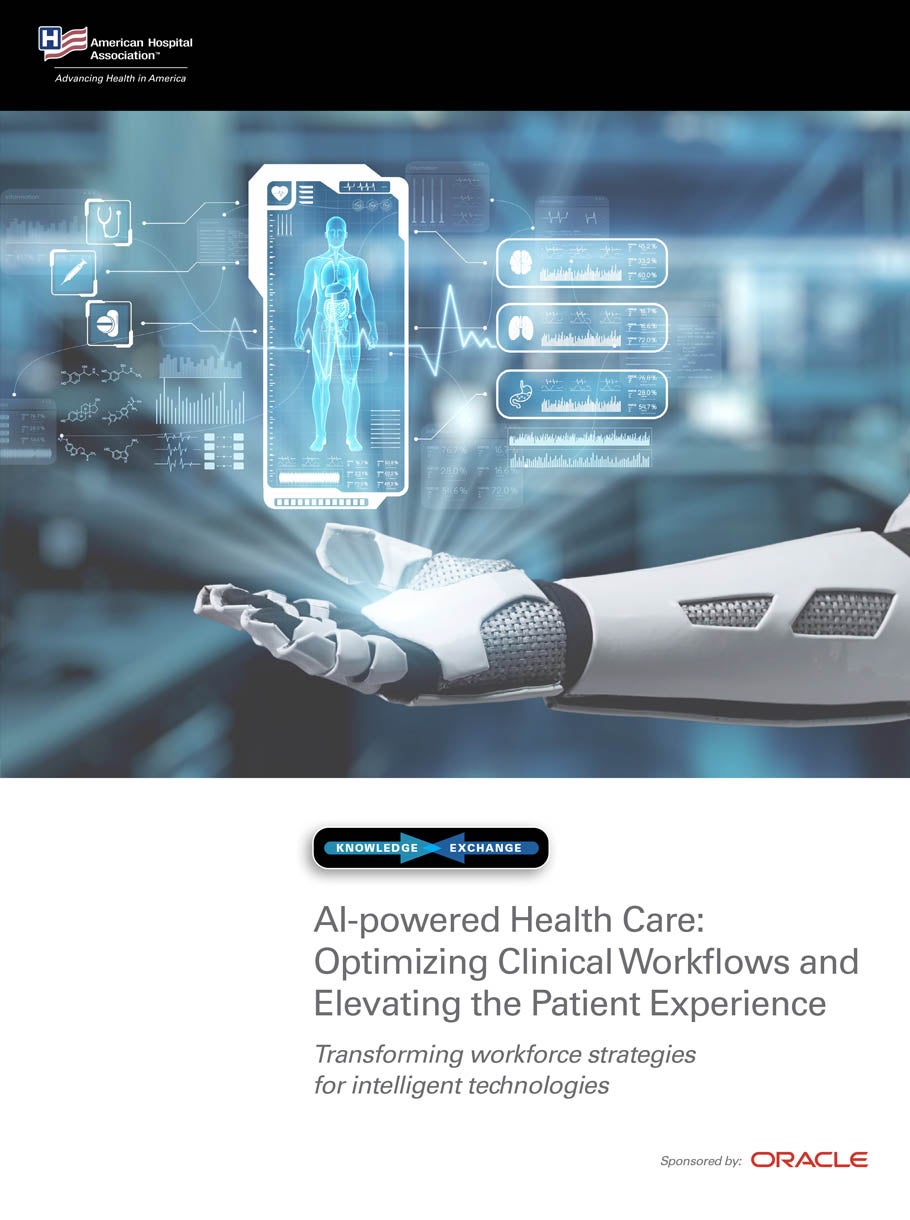AHA Knowledge Exchange
Transforming workforce strategies for intelligent technologies
Artificial intelligence (AI) is revolutionizing health care by optimizing clinical workflows and driving more personalized, efficient and proactive patient care. As adoption accelerates, hospitals and health systems are integrating AI and machine learning (ML) into decision support, diagnostics and administrative operations, driving better outcomes while navigating trust, transparency and scalability challenges. These technologies unlock real-time insights, helping clinicians process medical data quickly and craft personalized treatment plans based on genetics, lifestyle and past responses making care more precise and effective. AI also empowers patients with accessible, customized health information to actively participate in their own well-being. This Knowledge Exchange e-book highlights how health leaders are deploying AI and ML, what’s needed to scale responsibly and how to navigate the ethical and operational implications of intelligent technologies in health care.
10 strategies to drive transformation and build trust in the AI-enabled health system
- Invest in training and data infrastructure. Modernize data ecosystems to support AI accuracy. Provide hands-on AI education for clinicians, residents and staff.
- Co-design with clinicians from Day 1. Involve front-line teams in AI design and deployment. Ensure that tools reflect real-world workflows and integrate with existing systems.
- Build trust through transparency and pilots. Launch structured pilots with clear goals and feedback loops. Demonstrate measurable outcomes and leadership-led adoption.
- Streamline clinical workflows with ambient AI tools. Use ambient listening and note generation to reduce administrative burden. Free up clinicians for high-value tasks like decision-making and patient communication.
- Transform patient touchpoints into real-time, consumer-grade experiences. Deploy chatbots, triage tools and digital front doors for 24/7 access. Meet consumer expectations for on-demand, personalized care.
- Redesign workflows and reskill to prioritize empathy, judgment and high-value decision-making. Train for tech fluency and critical thinking in an AI-augmented environment.
- Shift from reactive to proactive care with predictive analytics. Use AI to anticipate risks and intervene early. Reduce hospitalizations and improve long-term outcomes.
- Personalize care plans to foster trust and improve care outcomes. Enable clinicians to deliver individualized care by leveraging genomic profiles, lifestyle data and clinical history.
- Prioritize data quality and prompt engineering. Ensure clean, validated data inputs and effective prompt design. Balance automation with human oversight and clinical judgment.
- Redefine professional value. Embrace AI’s role in routine tasks while elevating human strengths. Reimagine clinician identity around empathy, observation and strategic insight.
Participants
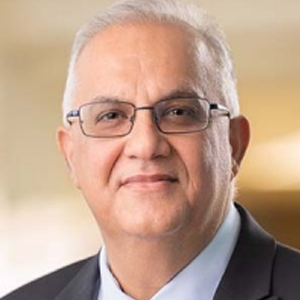
Sunil Dadlani
Executive Vice President, Chief Information and Digital Transformation Officer
Atlantic Health

Doug Dickey, M.D.
Senior Director, Product Management
Oracle Health

Wendy Horton, PharmD, MBA, FACHE
Senior Vice President and President of Adult Services
UCSF Health

Lisa Ishii, M.D., MHS
Senior Vice President of Operations
Johns Hopkins Health System

Andrea Limpuangthip, M.D.
Medical Director, Quality and Patient Safety
Mercy Medical Center

Nancy Lohuis, M.D., FAAFP, DAPBM-CI
Ambulatory Associate Chief Health Informatics Officer
Vandalia Health System

Donna Lynne, DrPH
CEO
Denver Health
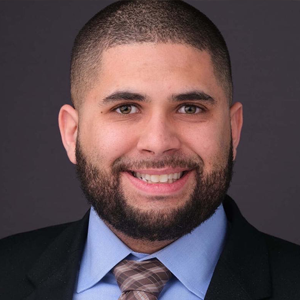
Ysmael Albert Peguero, DBA, FACHE
System Director of Strategy and Business Operations
Bristol Health

Otelah Perry
Senior Director of Quality Assurance and Safety
Dartmouth Health
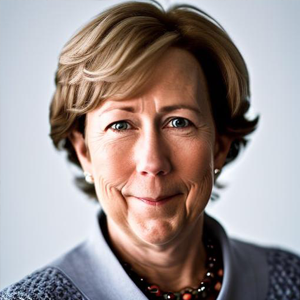
Donna Roach, MS, CHCIO, CDH-E
Chief Information Officer
University of Utah Health
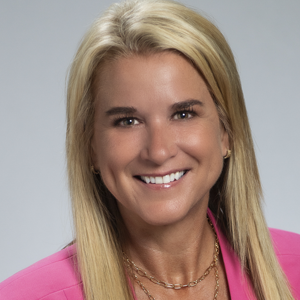
Holly Schmidtke, FACHE
President
Aurora West Allis Medical Center, Aurora Health Care
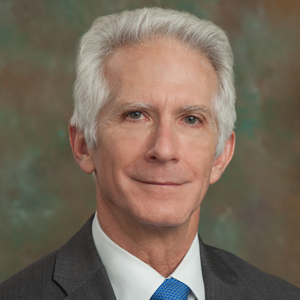
Robert Trestman, M.D., PhD
Chair, Psychiatry and Behavioral Medicine
Carilion Clinic and Virginia Tech Carilion School of Medicine

David Zaas, M.D., MBA
President
Atrium Health Wake Forest Baptist, Advocate Health

Moderator:
Chris DeRienzo, M.D.
Senior Vice President and Chief Physician Executive
American Hospital Association
President
AHA’s Health Research and Educational Trust
AHA Knowledge Exchange
Gain insights from the C-suite and health care leaders on the most pressing issues and transformational strategies.



